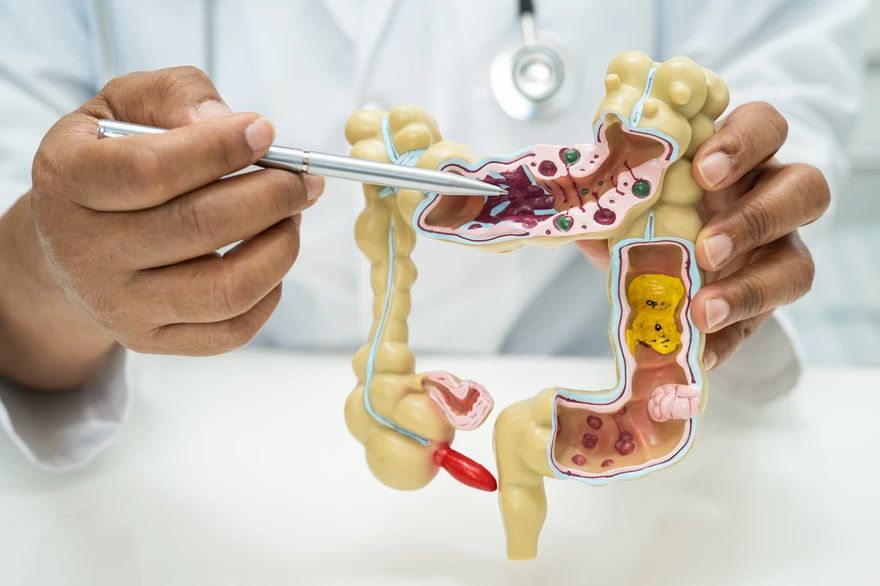Preventive Healthcare
Ascariasis: Causes, Symptoms, and Treatment Options
1060 Views
0

What is Ascariasis?
Ascariasis is a parasitic infection caused by the roundworm Ascaris lumbricoides. It is one of the most common human worm infections, affecting over 760 million people worldwide, primarily in tropical and subtropical regions with poor sanitation.
This infection occurs when individuals consume food or water tainted with Ascaris eggs from feces. The eggs hatch in the intestines, and the larvae migrate through the body, causing various symptoms depending on their location.
In the lungs, the larvae can cause pneumonia-like symptoms, including cough, wheezing, and difficulty breathing. In the intestines, ascariasis may result in abdominal pain, nausea, vomiting, diarrhoea, and malnutrition, particularly in children. In severe cases, a significant number of worms can result in intestinal blockage, which is a serious medical emergency.
Ascaris treatment involves using antiparasitic medications, while prevention emphasises better sanitation, handwashing, and safe food handling. Although most cases are mild or have no symptoms, heavy infestations can result in serious complications, highlighting the importance for early diagnosis and treatment.
What are the Types of Ascariasis?
It may be surprising, but there are different types of ascariasis exist. The most common is caused by the human roundworm (Ascaris lumbricoides), which is responsible for most cases. Another type is the pig roundworm (Ascaris suum). Although rarer, this type can also cause human infections, particularly in those who raise pigs or use pig manure for fertilisation.
How Common is Ascariasis?
Ascariasis affects more than 1 billion people globally, making it one of the most common parasitic infections and the most widespread type of intestinal worm infection. Children in tropical and subtropical regions with poor sanitation are especially at risk.
The infection occurs when people accidentally ingest Ascaris eggs through contaminated food or water, causing symptoms like stomach pain, nausea, and malnutrition. Enhancing sanitation and hygiene practices can significantly reduce the risk of this infection.
What are the Symptoms of Ascariasis?
Ascaris symptoms can be misleading, as most of the people are affected may have a few or no noticeable symptoms. However, there are some medical practitioners can detect the underlying symptoms.
Infection in Your Lungs
When Ascaris lumbricoides larvae migrate through the lungs, they can cause respiratory symptoms similar to asthma or pneumonia. Its common signs includes persistent cough, wheezing, and shortness of breath. Some individuals may also experience fever and, in rare cases, blood in their sputum. These symptoms typically arise about 10 to 14 days after infection as the larvae travel from the intestines to the lungs.
Infection in Your Intestines
In the intestines, ascariasis can cause different gastrointestinal symptoms. Mild infections might show up as uncertain abdominal pain and nausea, while more severe infections can lead to vomiting, diarrhea, and even blood in the stool.
Heavier infections can lead to intestinal blockages, resulting in intense abdominal cramps and possible malnutrition, especially in children. In extreme cases, adult worms may be expelled in vomit or stool, which can be quite distressing.
Recognising these symptoms early is crucial for effective treatment and management of ascariasis.
What Causes an Ascariasis Infection?
Ascariasis is caused by swallowing the eggs of the human roundworm A. lumbricoides. Once ingested, these parasites thrive throughout the human body, wherein they mature and reproduce. This leads to various health issues, particularly affecting those with poor sanitation and hygiene practices.
How is Ascariasis Transmitted?
Unlike some diseases that spread directly from person to person, ascariasis follows a different path. Transmission occurs when a person comes into contact with soil mixed with infected human or pig faeces or contaminated water.
The microscopic eggs present in these mediums can get into our bodies when we swallow them. This can happen through hand-to-mouth contact or by consuming uncooked fruits or vegetables grown in contaminated soil.
Notably, children are more prone to this infection due to their increased likelihood of playing in dirt and putting their dirty fingers into their mouths. Hence it's essential to maintain good hygiene practices and ensure children understand the importance too.
What is the Life Cycle of A. lumbricoides?
Understanding the life cycle of the Ascaris lumbricoides roundworm can shed light on how ascariasis spreads:
- Ingestion: The tiny ascariasis eggs cannot become infective without coming into contact with soil. People unknowingly ingest these eggs through dirty hands or by eating uncooked fruits or vegetables grown in contaminated soil.
- Migration: After hatching in your small intestine, the larvae migrate to your heart and lungs via your bloodstream or lymphatic system. They mature in your lungs over 10-14 days before making their way back to your intestines via your throat.
- Maturation: Once back in the intestines, the parasites grow into adult worms.
- Reproduction: Female worms can produce up to 200,000 eggs a day which exit your body through feces and become infective once they contact soil.
This entire process takes approximately two to three months.
Who is at Risk for Ascariasis?
Certain factors increase the risk of contracting ascariasis.
- Age: Children aged 10 and younger are most susceptible, as they are more likely to play in contaminated soil and put their fingers in their mouths.
- Climate: Ascariasis is more prevalent in warm, tropical, and subtropical regions with poor sanitation.
- Sanitation: Lack of access to clean water and soap, as well as areas where human waste mixes with soil, contribute to the spread of ascariasis.
- Occupation: Those who work with soil, such as farmers, are at higher risk.
- Travel: Visiting areas with poor sanitation and hygiene increases the chances of contracting ascariasis.
Ascariasis causes severe complications in children, including malnutrition, intestinal blockages, and slowed growth. Maintaining good hygiene habits is most crucial.
What are the Complications of Ascariasis?
While in most cases of ascariasis are mild and don't cause major problems, heavy infestations can lead to severe complications, including:
- Intestinal blockage: A heavy ascariasis infestation might lead to a mass of worms blocking your intestines, causing severe cramping and vomiting. In extreme cases, the blockage can cause a hole in the intestinal wall or appendix, leading to internal bleeding or appendicitis.
- Duct blockages: The worms may obstruct the narrow ducts of your liver or pancreas, causing intense pain.
- Nutritional deficiencies: Infections can result in loss of appetite and poor absorption of nutrients, particularly affecting children's growth as they might not receive sufficient nutrition.
How is Ascariasis Diagnosed?
Doctors usually diagnose ascariasis by examining a stool sample for parasites and eggs. If you exhibit symptoms like abdominal pain or vomiting worms, your doctor might request an imaging test such as an X-ray, CT scan, ultrasound, MRI scan, or endoscopy to assess the severity of the infestation.
How is Ascariasis Treated?
Ascarisis treatment includes a course of antiparasitic drugs to eliminate the worms from the body. In severe cases, where a heavy infection results in a complete blockage in the intestines, a surgical intervention may be required to remove the blockage and prevent further complications, ensuring proper digestive health.
Can I Prevent Ascariasis?
Preventing ascariasis primarily involves practising good hygiene.
Here are some tips:
- Always wash your hands with soap and water before eating or handling food
- Boil or filter water in regions that lack sanitation infrastructure
- Avoid consuming raw fruits and vegetables unless you can wash and peel them yourself
- Instruct children on the importance of washing hands frequently
What is the Long-Term Outlook for an Ascariasis Infection?
Many people recover from ascariasis with minimal treatment, symptoms may disappear before you're completely rid of the worms. However, larger infestations can cause serious complications. Therefore, if you suspect you have contracted ascariasis, it's important to consult a healthcare provider immediately.
What Happens If Ascariasis is Left Untreated?
If left untreated, the ascariasis worms can live inside your body for a year or two, which might lead to severe complications like intestinal blockage and nutritional deficiencies. Hence, early diagnosis and treatment are essential.
Conclusion
Navigating through the world of parasitic infections like ascariasis might seem daunting. Still, with the right knowledge and medical interventions, managing this conditions is entirely possible.
Metropolis Healthcare is a leading diagnostic chain across India, known for its accurate pathology testing services. Our team of qualified blood collection technicians visit your home to collect samples. Test reports are easily shared online through email and our user-friendly Metropolis TruHealth app. We are dedicated to empowering patients to prioritise their health with reliable results and personalised care.













1701259759.webp)









 WhatsApp
WhatsApp